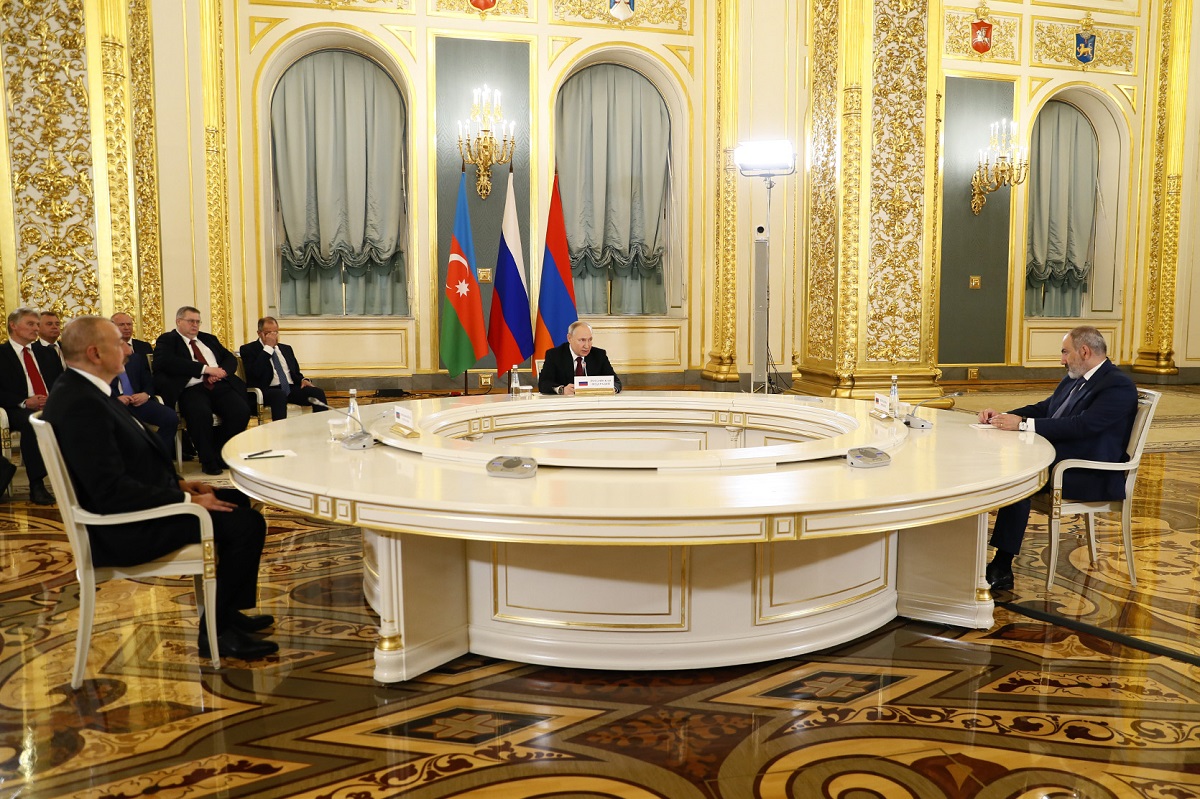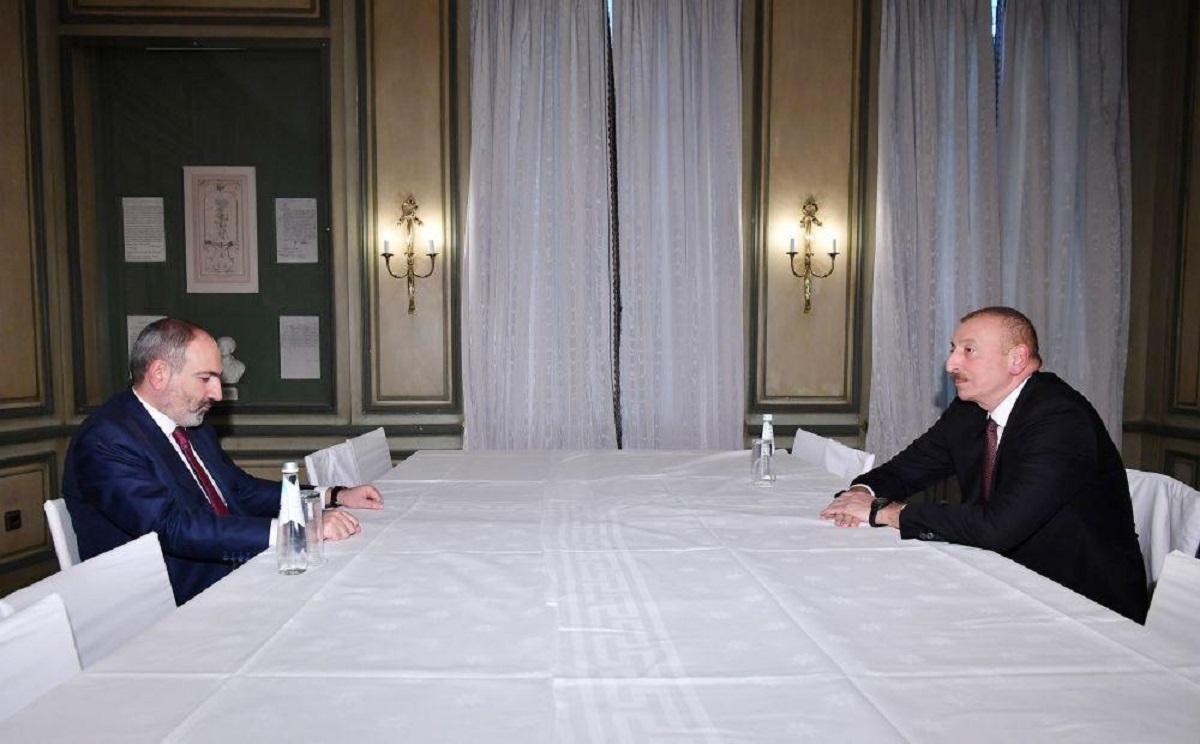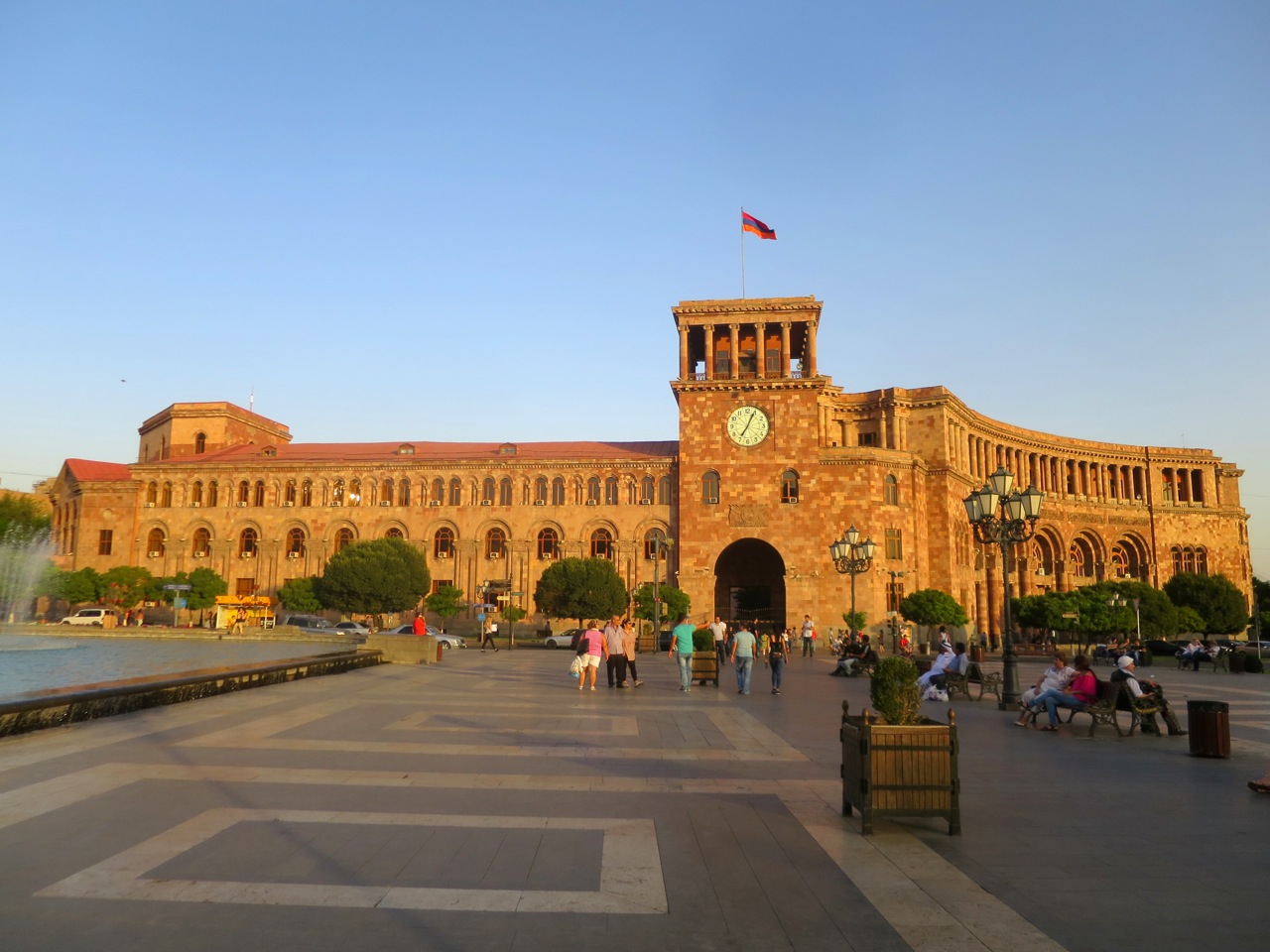"A difficult conversation awaits Aliyev in Chisinau." Commentary from Yerevan
Pashinyan-Aliyev meeting in Chisinau
“Aliyev’s position is not invulnerable, [mediators] are putting pressure on him,” political scientist David Stepanyan, an expert at the Armenian Institute of International Relations and Security, believes. He says the President of Azerbaijan will have a difficult conversation with the President of France and the Chancellor of Germany in Chisinau and that Armenia has taken a step by declaring the recognition of the territorial integrity of Azerbaijan: “[N]ow the ball is in the field of Azerbaijan.”
The next talks between the leaders of Armenia and Azerbaijan are scheduled within the framework of the summit of the European political community in Chisinau. A five-party meeting is expected, which will be attended by the head of the European Council, the German chancellor and the French president.
Pashinyan and Aliyev last met last week through Putin’s mediation. During the talks in Moscow they were unable to reach any agreements. Documents were not signed, which, according to Russian sources, were prepared and discussed before the meeting, and a joint statement was not adopted.
A few days after the Moscow talks, the President of Azerbaijan announced that, in addition to recognizing the territorial integrity of Azerbaijan, Armenia must fulfill a number of other conditions. In particular, he spoke about the delimitation of borders on Azerbaijan’s terms. This prompted the Prime Minister of Armenia to question whether this means a rejection of the agreements reached earlier in Brussels.
“There is no agreed-upon draft that could be signed”
After the recently intensified Armenian-Azerbaijani negotiations, the question arises whether a peace agreement will be signed at the upcoming meeting. Azerbaijani Ambassador to France Leyla Abdullayeva held out the possibility of signing the document, saying that “the historic moment must not be missed.”
However, recently the Prime Minister of Armenia stated that “there is no agreed draft that could be signed.” Pashinyan said that Azerbaijan’s comments on the latest proposals of the Armenian side are currently expected. The Armenian Foreign Ministry confirmed that the signing of the agreement is not included in the agenda of the meeting scheduled in Chisinau.
“As we have repeatedly noted, the Armenian side will be ready to sign the agreement at the moment when key issues are resolved,” the Foreign Ministry said in a statement.
Western partners expect a “productive meeting” and “bold decisions”
The head of the press service of the US State Department Matthew Miller said that a productive meeting is expected, which will allow solving problems at the negotiating table, and not with the use of force. He also welcomed the words of Azerbaijani President Ilham Aliyev “about considering the possibility of an amnesty [for the political elite of Karabakh]”.
The President of Azerbaijan stated: “They [the authorities of Nagorno-Karabakh] can only fall under the amnesty if they themselves voluntarily leave all fictitious positions and apply for Azerbaijani citizenship. And then we’ll see.”
Meanwhile, the Armenian Foreign Ministry expected a different response from the United States to this and other statements by Aliyev:
“We believe that the United States, based on the values of democracy and human rights proclaimed by them, as well as its commitment and involvement in the process of establishing lasting peace in the region, should respond appropriately to these statements in order to prevent the expansionist policy of the Azerbaijani leadership towards sovereign territory of Armenia, as well as his attempts to carry out ethnic cleansing in Nagorno-Karabakh”.
The day before the Chisinau talks, the head of the European Council, Charles Michel, spoke of the need for “bold decisions”:
“It is important to refrain from maximalist positions and strive for dialogue. The wounds of more than 30 years of conflict do not heal immediately. A dialogue is now vital between Baku and the Armenians living in the former NKAR regarding their rights and security.”
The European Union also welcomed the intensification of the Armenian-Azerbaijani negotiation process.
“It is important to maintain this historic progress and avoid steps, including hostile rhetoric, that could jeopardize the peace process,” EU Foreign Service spokesman Peter Stano said.
A comment
Political scientist David Stepanyan notes that Aliyev has been preparing for the meeting in Chisinau:
“This preparation is visible even to the naked eye. The Azerbaijani Armed Forces abducted two Armenian soldiers, as Baku intends to exchange them with its terrorists, who entered the territory of Armenia. And one of them killed a man. Aliyev is acting, and we are sitting and waiting for the signing of a peace agreement.”
The expert believes that if the Armenian side continues to wait, “issues will either not be resolved, or they will be resolved according to a very bad scenario for it.” He did not rule out that in this case, Aliyev could start hostilities and “enter Stepanakert.” But for this, he believes, Aliyev needs to get a “go-ahead to use force” from geopolitical centers.
According to the political scientist, the recognition of the territorial integrity of Azerbaijan by Pashinyan was the right move:
“Artsakh will not become part of Azerbaijan in connection with Pashinyan’s statement [on recognizing the territorial integrity of Azerbaijan]. There is a legal process for this, there must be a decision of the parliament, ratification, documents. All this can happen if a peace treaty is signed.”
Stepanyan believes that the call to “refrain from maximalist positions” can only apply to Azerbaijan:
“Now Western partners are waiting for a reciprocal step from Aliyev. And what step does Aliyev take? He goes to Lachin, says there: I will kill, slaughter, etc. In Chisinau they will tell him, get together, come to your senses.”
At the same time, Stepanyan does not place great hopes on the meeting in Chisinau. He warns that if there are no changes in the positions of Armenia and the unrecognized NKR, then “according to the most optimistic scenario, it will only be possible to achieve the rights of the Armenians living in Nagorno-Karabakh, nothing more”:
“If we continue to act according to the logic that is being promoted now, then the maximum that we can get is negotiations between Stepanakert and Baku after the signing of a peace treaty. Yes, the rights of people will be discussed within the framework of the international mechanism, there will be mediators.”
He sees opportunities to be exploited. In particular, he believes that the Armenians of NK should express their will and take concrete actions:
“For example, close the Khakari bridge and demand the opening of the Lachin corridor. This is not a one-day action, but a movement that can last more than one month. It is necessary to put Aliyev in a situation where he will face the only dilemma: either he shoots women and children in front of the cameras, in front of the whole world, or he leaves. If you start this movement, the world will support. If there are no actions, then we can wait for years for sanctions against Azerbaijan.”
The political scientist sees the following possibility of a diplomatic solution to the conflict:
“Resolve the Armenian-Azerbaijani conflict in the foreseeable future and leave the Artsakh issue open as a subject of negotiations between Stepanakert and Baku, where the international community will play a very important role. No one is going to abandon the Karabakh Armenians, leave them face to face with Baku.”
Follow us – Twitter | Facebook | Instagram
Pashinyan-Aliyev meeting in Chisinau





















